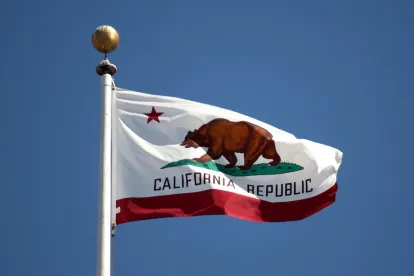California currently imposes unique disclosure requirements on publicly traded corporations. See California Joins The Parade: The California Corporate Disclosure Act, 16 Insights 21 (2002). These disclosures are at best useless because they duplicate the disclosures that these corporations already make (and more completely) in filings with the Securities and Exchange Commission.
California is now considering legislation that would impose greenhouse gas emissions disclosure obligations on "publicly traded domestic corporations" and "publicly traded foreign corporations". The bill, SB 260, would amend the Health & Safety Code and therefore the definitions of these terms in the Corporations Code would not necessarily be controlling. A corporation would be subject to the disclosure requirements only if it:
-
has annual revenues in excess of $1 billion; and
-
does business in California.
The bill does not attempt to define what constitutes doing business in California. A corporation meeting these conditions (a "covered entity") would be required to report and disclose the following:
-
Scope 1 emissions - all direct greenhouse gas emissions that stem from sources that a covered entity owns or directly controls, including, but not limited to, fuel combustion activities;
-
Scope 2 emissions - indirect greenhouse gas emissions from electricity purchased and used by a covered entity; and
-
Scope 3 emissions - indirect greenhouse gas emissions, other than scope 2 emissions, from activities of a covered entity that stem from sources that the covered entity does not own or directly control and may include, but are not limited to, emissions associated with the covered entity’s supply chain, business travel, employee commutes, procurement, waste, and water usage.
The bill would not require that these disclosures be filed with the Secretary of State but instead would require that they be "accessible to residents of the state, including, but not limited to, by making that information available on a widely available digital platform". The disclosures must be independently verified by a third-party "auditor" who must be approved by the state board. The public disclosure must include the name of the covered entity and any fictitious names, trade names, assumed names, and logos used by the covered entity.
The bill would require the State Air Resources Board to develop and adopt regulations requiring disclosures by January 1, 2023. Covered entities would be required to make the disclosures annually beginning January 1, 2024 with respect to the prior calendar year.
The bill also requires the state board develop and adopt regulations by January 1, 2024 to require a covered entity to set a science-based emissions target, based on the entity’s emissions that have been reported to it. Beginning January 1, 2025, covered entities would also be required to disclose publicly the science-based emissions target the covered entity has set for its emissions. The target must also be independently verified by an approved third-party "auditor".
For those who believe that this will only affect very large publicly traded companies should keep in mind that once these requirements are established, it would be relatively easy for the legislature to lower the disclosure threshold. As California continues to impose its own disclosure requirements on publicly traded corporations, these requirements would appear to be susceptible to an "obstacle preemption" challenge.



 />i
/>i

